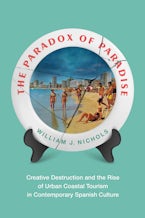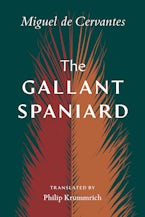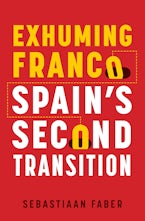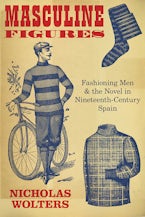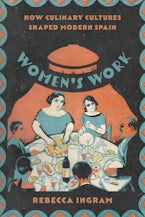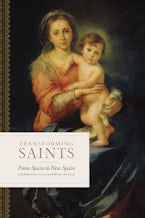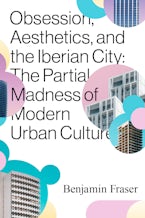- Home
- Performing Populism

Performing Populism
Visions of Spanish Politics from 15-M to Podemos
Whether or not it constituted a complete break from the past, the 15-M movement’s most important legacy was a more expansive notion of the popular political, one that recognized cultural representation as a mode of political articulation and as part of a political culture. In an effort to understand the populist cycle inaugurated by 15-M, and to do so beyond a series of narrated events, Performing Populism sets out to explain Spanish populism in relation to the performances of its visual politics.
The book's first part examines how the 15-M movement created a new way of seeing that in turn led to a new way of doing politics in Spain. Part Two focuses on the multiple ramifications of that new vision once the people stopped marching and the movement became less visible.
From electoral posters to fiction films, documentaries, and internet memes, Performing Populism traces the ways that collective Spanish identities evolved from a period when "the people" seemed to have been willingly subsumed under the apathetic ideation of the middle-class consumer to the moment in 2011 when a crisis of representation forced many into political consciousness. This rude awakening kickstarted the reconstruction of a Spanish "us" that staged exhibitions of popular will on par with and parallel to the Arab Spring, but in a European register that embraced the countercultural through art that disremembered its political past but could not escape the ghostly shadow of its history.
The book's first part examines how the 15-M movement created a new way of seeing that in turn led to a new way of doing politics in Spain. Part Two focuses on the multiple ramifications of that new vision once the people stopped marching and the movement became less visible.
From electoral posters to fiction films, documentaries, and internet memes, Performing Populism traces the ways that collective Spanish identities evolved from a period when "the people" seemed to have been willingly subsumed under the apathetic ideation of the middle-class consumer to the moment in 2011 when a crisis of representation forced many into political consciousness. This rude awakening kickstarted the reconstruction of a Spanish "us" that staged exhibitions of popular will on par with and parallel to the Arab Spring, but in a European register that embraced the countercultural through art that disremembered its political past but could not escape the ghostly shadow of its history.
Introduction
Part I: Seeing the People
1. Seeing the “Real” People of Spanish “Real” Democracy in the 15-M
2. Documenting Negotiations around the Place and the Time of “Real” Democracy
3. People’s “Bad Manners”: Seeing Populist Antagonism in Cinema After the 15-M
Part II: Performing Populism
4. What Did the People See? Beyond Mediatic Populism—Podemos’ Cinematic Turn
5. Parodying Podemos: A Memetic Journey toward the End of Populism
6. Epilogue: VOX’s Postfascism and the Memetic Reconstruction of Nationalist Antagonism
Conclusion: The Journey Back from Populism
Bibliography
Index
Part I: Seeing the People
1. Seeing the “Real” People of Spanish “Real” Democracy in the 15-M
2. Documenting Negotiations around the Place and the Time of “Real” Democracy
3. People’s “Bad Manners”: Seeing Populist Antagonism in Cinema After the 15-M
Part II: Performing Populism
4. What Did the People See? Beyond Mediatic Populism—Podemos’ Cinematic Turn
5. Parodying Podemos: A Memetic Journey toward the End of Populism
6. Epilogue: VOX’s Postfascism and the Memetic Reconstruction of Nationalist Antagonism
Conclusion: The Journey Back from Populism
Bibliography
Index
Ruben Perez Hidalgo is a lecturer of Spanish studies in the Department of Spanish and Latin American Studies at the University of Sydney.
"An insightful book focusing on the performative, visual, and cultural aspects of the 15-M movement, interrogating and illuminating how representations of 'the people' wove the movement into a new collective political actor. Perez Hidalgo offers an understanding of the power and limitations of political representation through a fascinating case study of contemporary 'populist' politics."
—Cristina Flesher Fominaya, author of Democracy Reloaded: Inside Spain’s Political Laboratory from 15-M to Podemos
"Perez Hidalgo’s Performing Populism is a triumph. Putting images and performance at the heart of understanding contemporary Spanish populism, it weaves together culture and politics and balances deep theoretical insight with grounded empirical observation in a truly masterful way. Genuinely transdisciplinary and creative, this is an exciting and important book."
—Benjamin Moffitt, author of The Global Rise of Populism: Performance, Political Style and Representation
"A book like Performing Populism is absolutely necessary to gain a better understanding and a systematic analysis of the visual dimension of populism. Perez Hidalgo’s work is pioneering an alternative approach to populist studies, besides offering an exciting reading of recent political and social events in Spain."
—Óscar García Agustín, author of Left-Wing Populism: The Politics of the People

